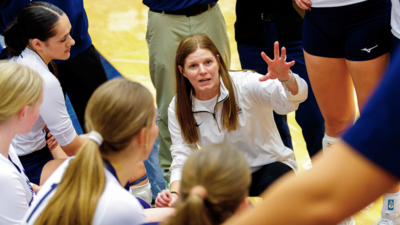How College is Different Than High School

The transition from high school to college is undoubtedly a big one; however, many students don’t take the time to stop and think why this may be. The ways in which college differs significantly from high school are many and can often slip students’ minds, becoming an unwelcome surprise during their first weeks or months of undergraduate study. For students who know these key differences between high school and college, however, the transition between the two can be smooth and even enjoyable!
Cost of attendance
It’s no secret: college can be expensive. On the other hand, public high school is completely free to attend. However, choosing to attend college is completely voluntary, while attendance at high school is required until at least the age of 16 or 17 in most states. One’s decision to attend college, therefore, can be heavily dependent on cost and financial aid in many cases. Be prepared to consider your finances much deeper during college than you ever did during high school.
Who controls your day?
Although you generally have freedom to choose certain extracurriculars and whether you take honors or regular classes in high school, your schedule is fixed. Each class meets at a certain time each day, and your schedule is often laid out by a guidance counselor or someone in a similar role. You switch classes when bells ring, and you might have to ride the bus home from school. In college, on the other hand, you have ultimate control over most of your day. You might have several hours with no class during the day, and you get to choose how to spend that time.
When do you go to class?
When starting college, don’t expect to attend every class every day or for all of them to meet for the same length of time. While this may have been the case in high school, college classes are much more spread out and variable in terms of their meeting times. At Concordia, classes usually meet on Mondays, Wednesdays, and Fridays or Tuesdays and Thursdays. Classes with three weekly meeting times are 50 minutes long, while classes with two are an hour and fifteen minutes long.
The downside of this change is that having a consistent daily schedule is a thing of the past. However, the upside is that you have time in between class meetings to complete homework – rarely will you receive an assignment on Monday that’s due on Tuesday!
Parents’ access to information
When you start college, you are an adult; therefore, you’re expected to act like an adult and have some very adult responsibilities. One such responsibility is that of maintaining and keeping track of your own grades. Unless you choose to share your password with your parents, they cannot access your grades, meaning you are the one who is responsible for knowing where you stand in a class.
Student investment in learning
In college, if the thrill of being able to study topics that you love doesn’t motivate you to participate in class, finish your homework, and get good grades, perhaps the money that you or your parents are spending on each class period will. Either way, college students’ motivation to learn and engage with their classes is generally somewhat higher than that of students in high school classes. This can create a sense of camaraderie among class students and strengthen their class discussions and overall outcomes.
Relationships with mentors
Depending on the size of your high school, it’s likely that you had six or seven teachers each year and possibly didn’t have them for multiple classes over the course of your experience. At the end of the day, high school teachers were there to teach class content. At the collegiate level, however, it’s much more likely that you will forge lasting and meaningful relationships with your professors, especially as you move into upper-level classes in your department. At smaller colleges like Concordia, this is especially true. Each professor wants to see their students succeed and know how much they are loved by God and by others.
New classes each semester vs. each year
Though you may be familiar with “semesters” when you start college, the distinction between them is likely starker than it was in high school. During Christmas break – which lasts three weeks in college -- classes pause, and a completely new schedule of them awaits you after the break. No classes are truly “year-long,” although some, like music theory or organic chemistry, have two or more classes available in sequence.
The bottom line: levels of student responsibility
What the difference between high school and college comes down to is the level of responsibility that students have in their education. College allows students to live away from home, create their own schedules, and structure most of their time without much outside input. Support from parents, friends, professors, and other mentors is always available; however, college students are expected to reach out and make the first steps in forming relationships and getting help.
After high school, new levels of freedom and choice await you; however, they are accompanied by an equivalent increase in personal responsibility. If you are up for the challenge, college is waiting for you!
Interested in studying at Concordia University, Nebraska? Learn more here.
Related Stories


